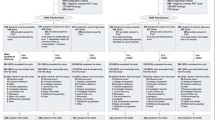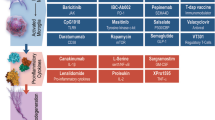Abstract
Purpose of Review
The purpose of this review is to identify key classes of medications that are used for the treatment of older adults with neurocognitive disorders.
Recent Findings
Clinical factors play a critical role in the prescribing of these medication classes for the treatment of dementia. The variation in prescribing trends is determined by the presence of medical and psychiatric comorbidities commonly occurring in older adults and is based on the consideration of potential interactions between pharmacotherapies for the comorbidities and for the dementia. Six medication classes currently exist to address the neurocognitive aspect of dementia, with varying pharmacokinetic and pharmacodynamic profiles. We review these six classes in this report and provide a provision of clinical insights regarding the use of these agents.
Summary
While literature exists on the safety and efficacy of individual medication options for the treatment of dementia in the older adult population, further research is needed to provide clearer guidance regarding the specific use of these agents in clinical practice.
Similar content being viewed by others
Data Availability
The data that support the findings of this study are openly available in PubMed at https://pubmed.ncbi.nlm.nih.gov.
References
Papers of particular interest, published recently, have been highlighted as: • Of importance •• Of major importance
American Psychiatric Association. Diagnostic and statistical manual of mental disorders fifth edition. 2013.
• Rappa L. Condensed Psychopharmacology 2020: Past, Present & Future. 2020 Jan; 125–132. This resource provides clear and concise summaries on pharmacological agents used in the treatment of dementia along with associated comorbidities.
Christianson E, et al. BCPP Bullets 2022 Edition. 2022.
Thomas C. Treatment of neurocognitive disorders. PBM-Education Series. 2022 Jun 8.
Anticholinergic Reference Pocket Card. University of Iowa. 2022.
By the 2019 American Geriatrics Society Beers Criteria® Update Expert Panel. American Geriatrics Society 2019 Updated AGS Beers Criteria® for potentially inappropriate medication use in older adults. J Am Geriatr Soc. 2019 Apr;67(4):674–694. https://doi.org/10.1111/jgs.15767. Epub 2019 Jan 29.
Trevisan LA. Update on geriatric depression and anxiety. Psychiatric Times. 2015 Jun 2; 32 (6). Available at: https://www.psychiatrictimes.com/view/update-geriatric-depression-and-anxiety. Accessed February 3, 2023.
Hoeft D. An overview of clinically significant drug interactions between medications used to treat psychiatric and medical conditions. Mental Health Clinician. 2014;4(3):118–30.
•• FDA MedWatch Safety Reports. Available at: https://www.fda.gov/Safety/MedWatch/SafetyInformation. Accessed January 31, 2023. This resource provides updates from healthcare professionals on the most recent changes associated with the safety profiles of current medications approved on the market for use within the USA.
Yan J. FDA extends black-box warning to all antipsychotics. Psychiatric News from the American Psychiatric Association. 2008 Jul 18. Available at: https://doi.org/10.1176/pn.43.14.0001#:~:text=%E2%80%9CThe%20boxed%20warning%20will%20say%20that%20elderly%20patients,and%20Research%2C%20at%20a%20June%2016%20press%20conference. Accessed March 15, 2023.
Reus VI, Fochtmann LJ, Eyler AE, Hilty DM, Horvitz-Lennon M, Jibson MD, Lopez OL, Mahoney J, Pasic J, Tan ZS, Wills CD, Rhoads R, Yager J. The American Psychiatric Association practice guideline on the use of antipsychotics to treat agitation or psychosis in patients with dementia. Am J Psychiatry. 2016;173(5):543–6. https://doi.org/10.1176/appi.ajp.2015.173501.
•• American Psychiatric Association. Neurodevelopmental disorders. In Diagnostic and statistical manual of mental disorders (5th ed., text rev.). 2022. This resource provides in-print as well as online review updates on the diagnosis and treatment of mental health conditions worldwide.
Electronic Medicines Compendium. Available at: https://www.medicines.org.uk/emc/product/2990/smpc#gref. Accessed January 20, 2023.
Cummings, J, et al. Lecanemab: Appropriate use recommendations. J Prev Alzheimer’s Dis. 2023 Mar 27. Available at: https://doi.org/10.14283/jpad.2023.30. Accessed April 26, 2023.
• Van Dyck CH, Swanson CJ, Aisen P, Bateman RJ, Chen C, Gee M, Kanekiyo M, Li D, Reyderman L, Cohen S, Froelich L, Katayama S, Sabbagh M, Vellas B, Watson D, Dhadda S, Irizarry M, Kramer LD, Iwatsubo T. Lecanemab in Early Alzheimer’s disease. N Engl J Med. 2023 Jan 5;388(1):9–21. This double-blind multi-center study examined the most recent uses of lecanemab among patients with early Alzheimer’s dementia from a safety and efficacy standpoint.
Mikulca JA, Nguyen V, Gajdosik DA, Teklu SG, Giunta EA, Lessa EA, Tran CH, Terak EC, Raffa RB. Potential novel targets for Alzheimer pharmacotherapy: II. Update on secretase inhibitors and related approaches. J Clin Pharm Ther. 2014 Feb;39(1):25–37.
Suliman NA, Mat Taib CN, MohdMoklas MA, Adenan MI, HidayatBaharuldin MT, Basir R. Establishing natural nootropics: recent molecular enhancement influenced by natural nootropic. Evid Based Complement Alternat Med. 2016;2016:4391375. https://doi.org/10.1155/2016/4391375. (Epub 2016 Aug 30).
Acknowledgements
The editors would like to thank Dr. Bradley Gaynes for taking the time to review this manuscript.
Author information
Authors and Affiliations
Contributions
The study authors contributed to all aspects of the article.
Corresponding author
Ethics declarations
IRB Exemption Statement
The NF/SG VAMC Institutional Review Board (IRB) as well as the IRB for the University of Florida have stated that this study is exempt due to the lack of a requirement for accessing patient charts or any patient/provider identifiable data for its completion.
Conflict of Interest
The authors declare no competing interests.
Human and Animal Rights and Informed Consent
This article does not contain any studies with human or animal subjects performed by any of the authors.
Additional information
Publisher's Note
Springer Nature remains neutral with regard to jurisdictional claims in published maps and institutional affiliations.
Rights and permissions
About this article
Cite this article
Fernandes, D., Suryadevara, U., Bruijnzeel, D. et al. Update on Cognitive Enhancers Among the Older Adult Population: A Clinical Review. Curr Psychiatry Rep 26, 73–77 (2024). https://doi.org/10.1007/s11920-024-01484-6
Accepted:
Published:
Issue Date:
DOI: https://doi.org/10.1007/s11920-024-01484-6




